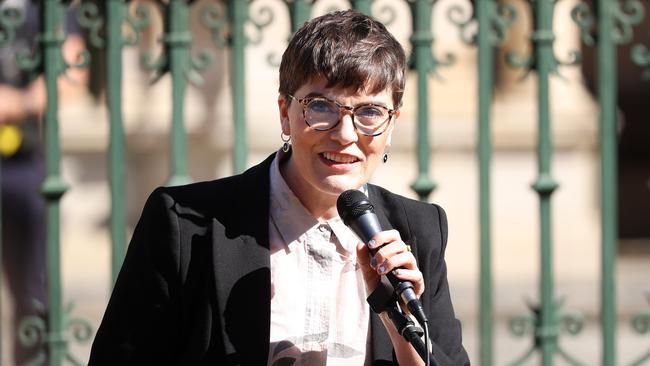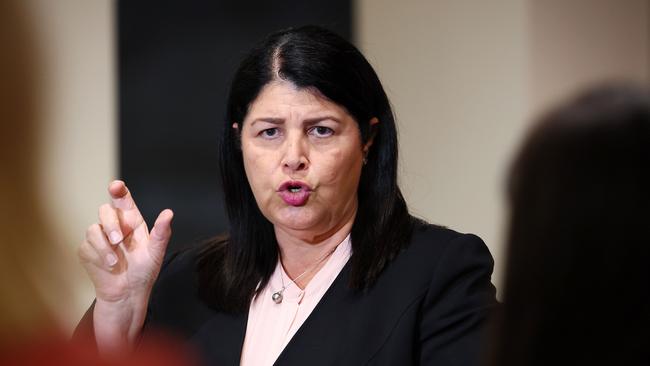Greens MP’s push for extra $6.8b to cover state school uniforms, text books, excursions, camps
The Greens have unveiled their plan to save Queensland families $2000 per child per year in state school service fees in a move that would cost an additional $6.8 billion in funding over four years.
Education
Don't miss out on the headlines from Education. Followed categories will be added to My News.
The Greens have unveiled their plan to save Queensland families $2000 per child per year in state school service fees, to ease the pressure during the cost-of-living crisis.
South Brisbane MP Amy MacMahon will unveil on Wednesday a Private Member‘s Bill proposing that by the start of the 2025 school year, the state government commits to fully funding state school education by covering outstanding school service costs.
The Greens MP will introduce it to state parliament next week, with the service fees it refers to including state school uniforms, stationery, text books, technology, as well as extra-curricular activities such as excursions and camps.

Dr MacMahon estimates this measure, if adopted by the Palaszczuk Labor government, will save Queensland families about $2000 annually per child in out-of-pocket expenses.
Dr MacMahon claims families have been contacting her office about their financial struggles related to state school service fees.
“Families are reaching out for help when these state school bills come in – parents are going on payment plans, asking for loans from friends or families, advances on Centrelink payments, or going into credit card debt,” she said.
“We will be building a ground campaign before the state government signs a new bilateral agreement with the federal government (the National School Reform Agreement).
“The Australian Education Union is campaigning hard on this at the moment, they recognise schools are woefully underfunded.”
The Greens believe this measure will require an additional $6.8 billion in funding over the next four years, but Dr MacMahon says this can be done.
“The Greens have been putting forward a range of suggestions for raising revenue from big companies and mining developers. We have this huge surplus from coal royalties and super profits, so we can focus on basics like education,” she said.
“Or the government could save some money from the $2.7 billion Gabba rebuild, which will force the closure of a state school (the heritage-listed East Brisbane State School).
“Or how about they use some of that $12 billion surplus?”
The Department of Education does provide some allowances to support families experiencing financial hardship such as a textbook and resource allowance of up to $317 per year.

Education Minister Grace Grace said various education and cost-of-living relief measures in this year’s budget were funded by increased coal royalties.
“We know that cost of living is rising and impacting Queensland families in schools, which is why we provide additional support through breakfast clubs, free period products, free and subsidised digital devices, free appointments with GPs and other wellbeing professionals in schools, and making transport to and from school cheaper,” she said.
“More broadly, this year’s budget also featured a record $8.2 billion to ease cost of living pressures including $550 rebates off electricity bills for all households, up to $1000 cashback for energy efficient appliances, and free kindy which will save families up to $4600 a year.”
Earlier this year Queensland families owed the Department of Education more than $17m in unpaid state school service fees.
The outstanding student debt rocketed to the record amount from $6.7m the previous year – and just $1.1m in 2019.
With 571,000 students enrolled in Queensland state schools, the debt was equivalent to an average of about $30 per student – up from just $2 per student three years prior.
At the time, the Department of Education said the increase in debt could partly be attributed to “relaxed parent payment follow-up”, as a result of the Covid pandemic.




